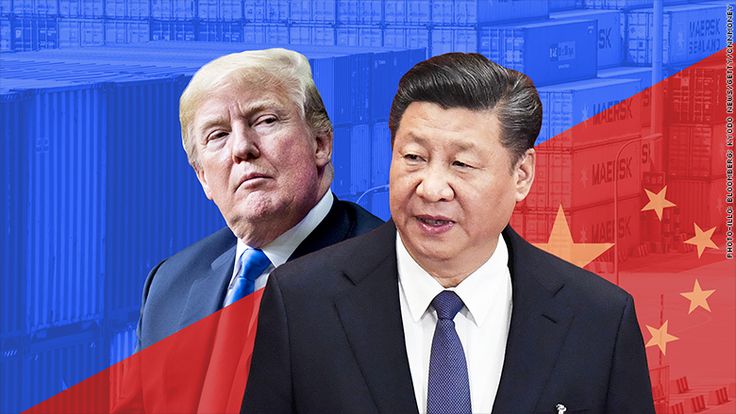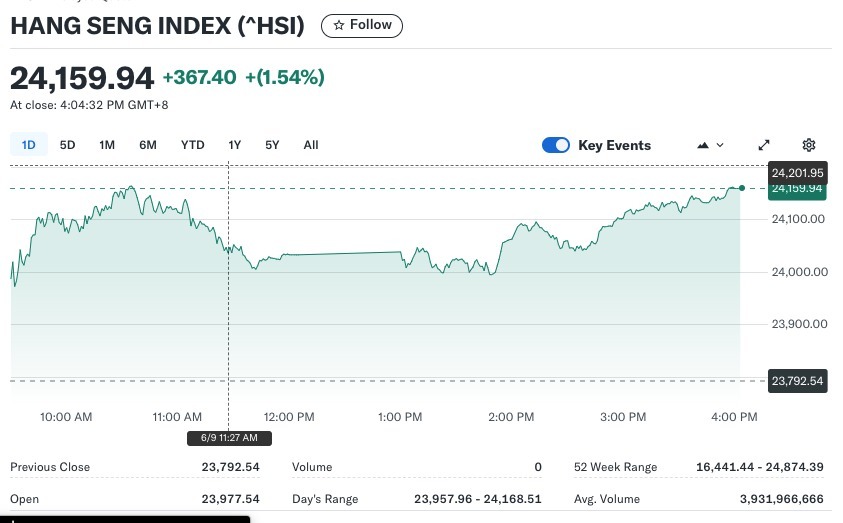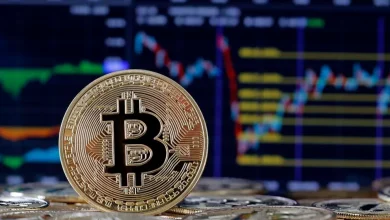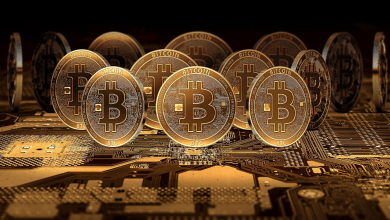Bitcoin Stalls as Hang Seng Surges on U.S.-China Trade Talks

The Crypto market has shown little strength on Monday, even as positive signs from the U.S.-China trade talk, announced on Friday, gave a lift to Asian stock markets. BTC has traded near $105, 650 on Mondays while showing signs of indecision after tapping into a resistance level.
According to Blockchain.com, there has been a slowdown in network activities, with the seven-day average of daily on-chain transactions falling to 315,480, the lowest level in over a year.
Other major crypto followed a similar path, XRP has dropped 1.74% in the last 24 hours, now trading at $2.2, despite tipping into a support level. At the same time, Dogecoin (DOGE) also slipped over 2%, trading around 18 cents.
Meanwhile, traditional financial markets in Asia had a more upbeat start. Hong Kong’s Hang Seng Index climbed 1.54% to break above the 24,000 mark for the first time since March 24.

The rally was driven by expectations surrounding U.S.–China trade discussions. “Optimism is as high as it’s been since Trump’s election as top trade deputies will meet in London starting on Monday,” said Adam Button, Chief Currency Analyst at ForexLive.
President Donald Trump echoed the sentiment a few days back, saying on Truth Social, “The meeting should go very well.”
However, China’s economic data remains a concern. According to the National Bureau of Statistics, the country is slipping deeper into deflation, with consumer prices falling 0.1% year-over-year in May. Factory gate prices dropped 3.3%, even worse than what analysts had expected.
Robin Brooks of the Brookings Institution warned that “U.S. tariffs will now push China into full-on deflation,” pointing to weak consumption and high debt levels.
Markets are now looking ahead to Wednesday’s U.S. inflation data. A hotter-than-expected Consumer Price Index (CPI) report could reduce the chances of Federal Reserve rate cuts and add new pressure on both equities and crypto markets.
Economists at Barclays say the report may show the first signs of tariffs-related price increases across a wide range of core goods.




